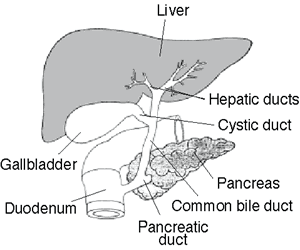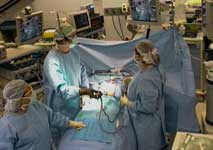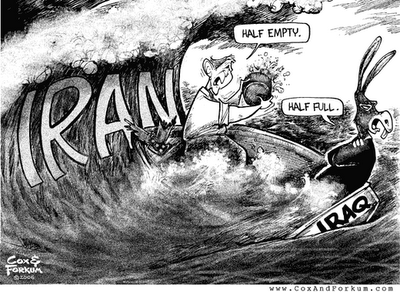I have attempted to treat the condition with diet changes and health supplements. I recently had another scan, and it showed that the sludge has cleared away, so I think the diet changes helped thin out the bile. However, the gall bladder still has a number of small stones. It is roughly about 20 percent filled with small stones.

The Medical approach is to remove the gall bladder. My doctor, and the surgeon I spoke with, both insist this is the way to go. My concern is, that removing the gall bladder simply deals with the symptoms, and does not address the cause, which I would say is the thickening of the bile which caused the stones to form in the first place. My inclination is to do that; correct the imbalance that was causing the bile to thicken and the stones to form.
Since the sludge has been washed out, I think I have had some success. However, the stones may be another matter. Some alternative medicine sources recommend various versions of a "gall bladder flush" to force the stones out. Others say the stones can be dissolved over time.
The technician who did my last sonic scan said he has seen several people try to dissolve their stones by various methods, but has never seen any of them suceed. That leaves me the option of the flush, which both my doctor and the surgeon advise against. The surgeon warns that a flush could actually cause a stone to became stuck in the biliary system, requiring emergency surgery. My doctor warned me that if a stone were to obstruct the opening from the pancreas, that organ could be seriously damaged, and it could even be fatal.
So on the one hand, I'd like to make the gall bladder "well" again. On the other, I have medical doctors advising me that it would be risky and unnecessary; that the gall bladder is nothing more than a holding chamber for bile, which is used to dispense bile when large amounts of fat are eaten (and I should not be eating large amounts of fat anyway). The doctors believe there are no negative health consequences to having the gall bladder removed.

I have read that when the gall bladder is removed, the liver makes less bile, because there is nothing to hold it. I am concerned that, over the long run, this could affect my bodies ability to absorb vitamins that need to be digested with fat to be absorbed (A, D, E and K). I know the doctors don't think this is a concern, but I also suspect that if I did have such problems later in life, they would just perscribe drugs to treat those symptoms, which would just mask the problem but not cure it. But is the vitamin absorbtion issue really a legitimate concern?
I do think the doctors concerns about stones blocking things and causing problems are legitimate. Also, I read some where that if the stones have already caused scaring in the lining of the gall bladder, that may increase the chances that stones will continue to form, no matter what diet I maintain. If that's true, if that happens, then this becomes a chronic condition that would have be be managed and monitored the rest of my life, requiring repeated scans and periodic flushes of stones, with all the attendant risks. If that is the case, then having the gall bladder removed would solve a lot of problems.
I would be interested in hearing from anyone else who has faced this situation, and hearing about what you decided to do, and how it has worked out for you. Thank you.
Related Links:
SHOULD I HAVE MY GALLBLADDER REMOVED?
... The gallbladder does facilitate and regulate the flow of bile in your body. When that facilitator is taken away it is quite possible that the flow will be not as efficient, ie. too much at one time, or more commonly, not enough. ...
... You are/were already having trouble digesting fats. So why would removing the organ that regulates the metabolizer of fats improve your digestion? It may help with the pain, but know that 34% of people who have their gallbladder removed still experience some abdominal pain.
This site seemed to be the most balanced and informative. It's not entirely against surgery, but does address potential side effects in detail, not only for people experiencing gall bladder problems, but also for people who have already had their gall bladder's removed. The site has several pages and offers a lot of information.
Gallbladder, and Gallstone Clinic of Denver, Colorado
... Once they remove your gall bladder, then you will not be able to digest vitamins A, D, E, K. These all have to do with skin, immune system, circulation, and blood clotting, and sexual performance.
You need to weigh it out and realize that you do need a gall bladder no matter what the MD says.
That is a pretty serious statement. But how true is it?
Avoiding Dangers of Gall Bladder Surgery
The advent of laparoscopic surgery, which uses small instruments guided by a television camera, has made many types of surgery safer and less invasive.
In the case of gall bladder surgery, though, it has led to some unintended consequences. Surgeons could previously navigate the area around the gall bladder by feeling structures with their hands. But now, guided by a television image, surgeons can mistakenly damage the bile duct, the tube attached to the gall bladder.
"We've lost the ability to feel the structures in the abdomen," said Dr. David Flum, assistant professor of surgery at the UW. "Because of that, the risk of an injury to the bile duct is very real. It doesn't happen often, but when it does happen, it's devastating." ...
... Flum and his colleagues set out to illustrate the impact of bile duct injuries. They studied the records of more than 1.5 million Medicare patients who underwent gall bladder surgery, including the nearly 8,000 patients who suffered bile duct injuries. Nearly one-third of patients suffering a bile duct injury died within a year after the surgery. Researchers also found that repairing the injury requires a great deal of skill.
Flum's team then examined ways that bile duct injuries could be prevented. They reviewed the usefulness of a cholangiogram, an X-ray of the gall bladder and the surrounding area.
"It's like a road map," explained Flum. "A surgeon can see whether what he or she thought was the right tube was actually the right one, or if the assumption is wrong."
The researchers learned that the risk of bile duct injury dropped by half when patients had a cholangiogram before the surgery. A cholangiogram is performed only about 40 percent of the time. ...
(bold emphasis mine) An interesting article on the surgical aspects.
I refer to this as a dilemma, because I don't relish the idea of trying a "flush" and risking a stone blockage, or having to do multiple flushes the rest of my life. But neither are the risks associated with surgery, and the possible consequences afterward, an attractive alternative. I'm tempted to do nothing, but even that could have consequences of a continuing problem which could worsen later. There is also the insurance factor; I've used up my large deductible for the year. If I am to have the surgery, it would be advantagous to have it before the year end.
I know there are no guarantees with anything. But it would be easier to make a decision if I could just feel more right about choosing one of the options over the others.
UPDATE: 11-19-06
I had the surgery performed on November 15th, and I'm at home now recuperating. You can read the details in my latest post on the subject:
My gall bladder surgery









































